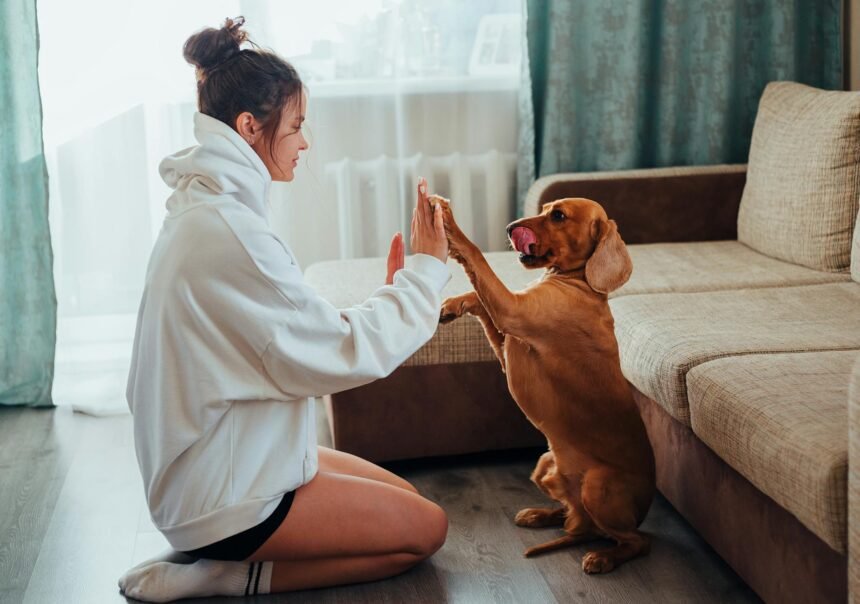When it comes to dog care, providing the best of dogs with their needs is necessary for health and happiness. In this concern, everything from choosing a breed fitting you to making sure every single need of a dog, either physical or emotional, is satisfied will be discussed throughout the whole of this guide.
Choosing the Right Breed
Understanding Your Lifestyle
Choosing the right breed of dog is really important. Different breeds have different needs and temperaments. Reflect on your lifestyle and environment. Are you active and outdoorsy? A high-energy breed like a Border Collie would suit your lifestyle perfectly. If you enjoy a more relaxed pace of life, a French Bulldog would make a perfect companion.
Breed Research
Find out what each breed is like, how large they are, how much energy they have, and what their common health issues are. The American Kennel Club has very thorough descriptions of each breed. Talk with breeders and visit shelters to get a better feel for the different breeds and their needs.
Get Your Home Ready
Making a Safe Space
Before bringing your new dog home, make sure the space is safe for it. Eliminate anything toxic or hazardous from your dog’s environment, secure electrical cords, and establish a place for your dog to eat, sleep, and play. Puppy-proofing your house is important if you’re getting a young dog.
Necessary Supplies
Get the basics, such as a bed, crate, food, water dishes, and tons of toys. Get a quality, age, size, and breed-appropriate source of food for your dog. Don’t forget to have grooming equipment for your dog: brushes, nail clippers, shampoo, etc.
Nutrition and Feeding
Choosing the Right Food
Good nutrition is paramount to the overall health of your dog. It is always advisable to consult with your veterinarian about the appropriate diet for the age, size, and breed of your dog. Good quality commercial dog food is complete balanced and easy to feed, but many dog owners either prepare homemade diets or feed raw foods. Make sure that the diet you’re feeding will be adequate to meet your dog’s nutritional needs.
Feeding Schedules
Puppies will generally need three to four feedings daily. An adult dog can be fed two times daily. Be vigilant to monitor his weight gain, adjust portion sizes accordingly, and ensure he won’t become obese.
Exercise and Play
Everyday Exercise Requirements
Dogs need exercise to maintain physical and mental health. All dogs require exercise, but some dogs need more than others. The high-energy breeds will need at least one hour a day of rigorous activity, while the lower energy dogs can be content with a few short walks per day.
Dogs Need Mental Stimulation
Dogs require mental stimulation to help keep them from becoming bored and destructive. Please provide them with puzzle toys, training sessions, and interactive play as forms of stimulation. Training is good for their brain as well as good for developing a good bond between you two.
Regular Grooming
Grooming is an important aspect of your dog’s health and well-being. Regular brushing keeps the coat in good condition and minimizes shedding. The frequency at which your dog needs a bath will depend on breed and lifestyle; consult with your veterinarian about how often to bathe your dog.
Dental Health
As minor as dental care may appear, it’s just necessary for the health of your dog. Regular brushing and having dental chews can lead to a reduction in plaque and tartar accumulation. Get in contact with your veterinarian to find an appropriate schedule of check-ups for dental care.
Health and Veterinary Care
Check-ups
Routine veterinary care tends to maintain the overall health of your dog. Take appointments for yearly check-ups, vaccination updates, and dental cleanings. Of course, the more visits to your vet, the better health problems will be detected and corrected.
Preventative Care
Preventative care involves vaccination, flea and tick prevention, and heartworm medication. Follow what your veterinarian will advise to keep common illnesses and parasites at bay.
Training and Socialization
Basic Training
Training your dog in basic commands such as sit, stay, and come is critical for its own safety and peace of mind. Positive reinforcement works great and helps increase the bond between you and your dog.
Socialization
Socializing your dog is very important—ideally, while they are still puppies. It is very crucial to expose them to different things, which will build their confidence and reduce fear-based behaviors. For increased socialization, take your dog to puppy classes or set up playdates with other dogs.
Canine Behavior: Stress and Anxiety
Your ability to manage your dog’s stress and anxiety is based on your understanding of its body language and behavior. Possible signs include heavy panting, pacing around, or too much barking. Consult your veterinarian or a certified trainer if the behaviors persist.
Tackling problem behavior
Aggression, separation anxiety, and destructive chewing are three of the most common problem behaviors. Work with a certified trainer or a behaviorist early on when these surface. Be patient and consistent while using positive reinforcement.
Traveling with Your Dog
Be Prepared
Whether by car or air, there are essentials when your dog is on the go. Make it safe and comfortable with a crate or harness, and don’t forget food, water, and a few favorite toys,
Finding Pet-Friendly Accommodations
Check accommodations that welcome pets ahead of time. Most hotels and vacation rentals are happy to accept dogs, but it’s always best to check in advance. Many travelers use hotels, so remember to consider if your furry friend feels good in these places and will not have any difficulties.
Caring for Older Dogs
Adjusting Care for Older Dogs
As your dog gets older, your care approach will need to change. Senior dogs may require special diets, more frequent vet visits, and modifications to their exercise routine. Pay close attention to their health and make adaptations accordingly to ensure continuing comfort.
Comfort and Mobility
Senior dogs are likely to start getting stiff and sore. Orthopedic bedding, ramps, and supplements can help them move about the house comfortably. Any of the general health problems that confront older dogs can be discussed during a regular vet visit.
Conclusion
A dog is a lot of joy, but a lot of work. By understanding your dog’s needs and providing proper care, you can ensure they lead a healthy and happy life. Remember, a well-cared-for dog is not only a companion but a source of joy and unconditional love.









